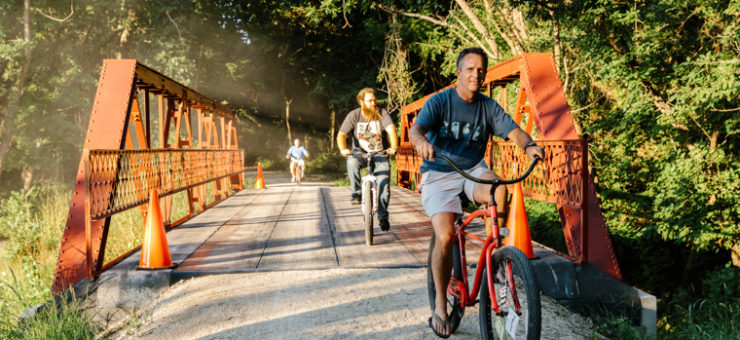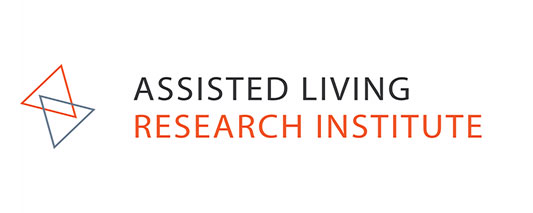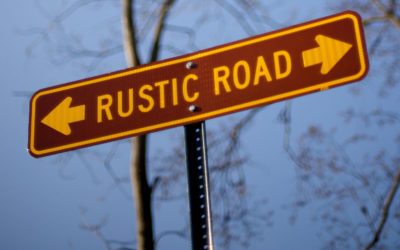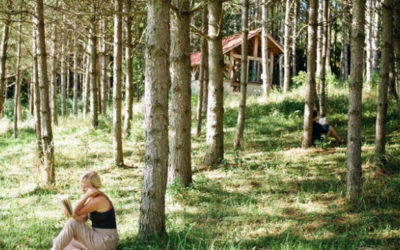A seventh generation Allen County Kansan, David Toland worked for more than a decade as a city planner in offices as far flung as Washington D.C. and Reno, Nevada before returning to his rural roots in Iola, Kansas. Since his return,Toland has been the CEO of Thrive Allen County —a non-profit group that works to improve quality of life and economic conditions in Allen County, Kansas through innovative approaches to improving healthcare access, healthy lifestyles and economic development in a small, rural Kansas county. The key to the success of THRIVE has been the organization’s ability to allow the residents of Allen County to have the strongest voice in what they want and need. Having a place at the decision-making table has created buy-in and, in turn, a wealth of community participation. As Thrive CEO Toland has overseen the organization’s development from a loose-knit coalition based in Iola to a strong countywide organization that has been instrumental in the development of 20 miles of new trails; voter approval of a new critical access hospital; passage of the third Tobacco 21 ordinance in Kansas and the 9th Complete Streets ordinance in the state in addition to the opening of a new federally-qualified health center (FQHC); and the ongoing redevelopment of the former Allen County Hospital site into a new retail and apartment neighborhood. Under Toland’s leadership Allen County was also selected as a 2017 Robert Wood Johnson Foundation Culture of Health Prize winner.

Iola, KS – August 1, 2017 – David Toland, CEO of Thrive Allen County, stands in a corridor at the shuttered cement factory located on the edge of town. PC: Will Widmer. Courtesy of the Robert Wood Johnson Foundation.
Standing in front of an audience of rural leaders and changemakers in Durham, N.C. Toland holds up a large glass jar asking the audience to identify it.
It is a pickle jar, “Otherwise known as a rural healthcare financing mechanism.” he quips.
In a captivaing address, Toland went on to note that this pickle jar is “one of a million that we have all seen in the hardware store, diner or convenience store. This is how we pay for healthcare when one of our neighbors gets cancer, has a farm accident, or is in a car wreck.”
What follows here is the address given by Toland to the Rural Assembly, “a movement of people and organizations devoted to building a stronger, more vibrant rural America for children, families, and communities.” Though it is difficult to capture an engaging presentation with text, it seems worthy of reprinting as he addresses critical issues regarding community health, not to mention the challenges of community engagement and resistance to change.

Humboldt, KS – July 31, 2017 – David Toland (Center), CEO of THRIVE Allen County, leads a community conversation at a frame shop in downtown Humboldt. PC:Will Widmer. Courtesy of the Robert Wood Johnson Foundation.
We pay for healthcare, in the richest society in the history of the world, by putting nickels in pickle jars.
That’s certainly how it’s been for my community, anyway.
Allen County, Kansas is a lot like most of the other little squares on the Kansas map. Or any state’s map, for that matter.
We’re small —only about 13,000— with a bunch of little towns sprinkled across the landscape. We’ve got civic clubs, and lots of churches, and diners where people sit around cussing and discussing the weather. Commodity prices. Obama.
And we talk about the past.
The people in Elsmore talk about how Moran shut down their school back in the 90s. Humbolt, where they’re still mad about that bad football call back in ’57, still teaches in their schools how Iola stole the county seat from them. In 1865.
This is just our strain of it… the petty rivalries, slights, and bad football calls that, combined, turn into reasons NOT to do anything. Maybe you have them too?
They’ll say “She’s tryin’ta open a coffee shop? That’s crazy! Don’t ya remember when Mike’s boy tried that and went bust?”
“A walkin’ trail? Nobody walks here!”
“A DOG PARK? Who’n the hell builds a park… for DOGS?”
And on and on it goes.
When left unchecked —this coffee shop cancer—it consumes the positive energy that naturally exists in communities. People quit trying.
That’s where we were in Allen County about 15 years ago.
But something happened. A group of folks was tired of accepting the premise that tomorrow has to be worse than today. Tired of seeing fewer people eat at the Kiwanis club. Tired of accepting the premise that change has to mean LOSS.
And they said “ENOUGH.”
They started to push back with a different message. A message that said “Hey, we’re not gonna make it if we don’t change how we’re doing business: the business of being a community.”
And they had an audacious vision: that Allen County would become the healthiest rural county in the state. And that it would not just survive, but THRIVE.

Moran, KS – July 30, 2017 – Tom Lundberg (68) and his mother Elizabeth Lundberg (99) check out with Colleen Brash, the store clerk at Stubb’s grocery store. Mr. Lundberg lives in Witchita, but makes the drive to Allen County to help his mother with her shopping each week. PC: Will Widmer. Courtesy of the Robert Wood Johnson Foundation.
Out of these conversations sprang a coalition designed to harness all of this energy: Thrive Allen County. And from Thrive sprang a new way of doing what we had always done, but had somehow forgotten in the last 30 years: making sure that the work was done by the people. Allen County was, and is, resident led.
We started with community conversations, from the county seat of Iola with its 6,000 residents, to the smallest town in the county, Bassett, with 22 people where we met in the mayor’s garage.

Humboldt, KS – July 31, 2017 – David Toland (center), CEO of THRIVE Allen County, leads a community conversation at a frame shop in downtown Humboldt. PC: Will Widmer. Courtesy of the Robert Wood Johnson Foundation.
In the town of Elsmore —population 67— we said “Hey, what do you want to see happen here?” And at first, all we heard in response was crickets. Utter silence. But, eventually, some old farmer in overalls said “I know y’all don’t do this, but we really need the ditches mowed on 4600 Road.”
And we said “Huh.” “We never thought of that.” And we considered all of our professional training —everything they teach us about running a non-profit— staying mission focused and all that.
And then we ignored everything we’d been taught and we got those ditches mowed.
A few months later, we went back. They said nothing of the ditches, but they now wanted a stop sign put back up. So, we got them a stop sign.
Then they wanted flu shots. Then a playground. Then to fix up their community building. Then a fitness center in that community building.
And it grew, and grew, and grew. And it was THEIRS.

Allen County Farmers’ Market. PC: Will Widmer. Courtesy of the Robert Wood Johnson Foundation.
Then WE needed something. Our critical access hospital was falling apart. We needed a new facility, and the only way to get it was with a countywide bond. We hadn’t tried one since 1969.
You may not be surprised, with the benefit of hindsight, that the measure passed with 72% of the vote. But we were. That’s because making progress in community work is like watching a tree grow: you can usually only see the difference from year to year —if you’re lucky— but more often, it’s by the decade. You certainly can’t see it day by day.
But you can FEEL it.
Along the way, across the county, we suddenly realized there were sprigs of new growth everywhere. Some of that was by design: we gave up on having committees, and organized work by tasks instead. And volunteers flocked in, tackling the things that needed doing in their communities.

Humboldt, KS – Aug 1, 2017 – Local residents take a community bike ride from Humboldt to Iola along the new Southwind Rail Trail. PC: Will Widmer. Courtesy of the Robert Wood Johnson Foundation.
For some, these were projects that hit home on a personal level. But much of it took place because people do what they see other people doing. When taking action in your community becomes the fashionable thing to do, people become an unstoppable force.
So today, those old codgers are still in the diner, cussin’ and discussin’. But even their conversations have changed. Now it’s “I’m tired of all those people on the walking trail waving at me when I am mowing my yard.” Or, “Did you see all those people at the dog park? Looks dangerous to me. Somebody’s gonna get bit.”
Now, the voices that dominate in Allen County are the voices of action. Voices of progress. Voices that say “HOW should we do this?” instead of “WHY should we do this?” The negativity does not go unchallenged.
We don’t have it all figured out. Far from it. We still fight. Too many people are still mired in poverty. Our county health ranking has a long, long way to go. And yeah, we’ve still got pickle jars. But we’ve also got a free clinic to send people to. And we’re going to pass Medicaid expansion in Kansas next year —mark my words.

Young Entrepreneurs PC: Will Widmer. Courtesy of the Robert Wood Johnson Foundation.
We’re succeeding because we’re throwing away labels imposed on us —that something is liberal this or conservative that— and focusing on what works for US —letting the residents lead the work.
And we have adopted a new call to arms: ACTION REMOVES DOUBT.
Action Removes Doubt. Whether it’s taking action to eliminate inequities, build a hospital, win a Robert Wood Johnson Foundation “Culture of Health” prize, mow a ditch, or throw away the pickle jar —Action Removes Doubt.

Iola, KS – August 1, 2017 – Members of THRIVE Allen County, construction staff, and and community officials discuss plans for a new grocery store in downtown Iola. PC: Will Widmer. Courtesy of the Robert Wood Johnson Foundation.
To see video footage of Toland’s speech follow this link to the Daily Yonder, where you will find all kinds of stories related to rural life. The Daily Yonder is the journalistic blog put out by the Center for Rural Strategies.






